After almost a decade of adventures within Civilization 6, fans of the franchise are gearing up for the release of the hotly-anticipated Sid Meier’s Civilization 7. Just like with every entry before it, this 4X title aims to retain the heart and charm of what has come before while also overhauling the experience. Not only have civilizations and leaders been separated, but warfare has also changed dramatically, and some Civilization victories are nowhere to be found.
While it remains to be seen if all of these Civilization 7 changes pay off for fans of the franchise, Firaxis sounds pretty confident in what the studio is delivering. Game Rant recently got to sit down with two of those developers, lead designer Ed Beach and executive producer Dennis Shirk, to talk about said changes and just what players can expect once the release date rolls around. This interview has been edited for brevity and clarity.
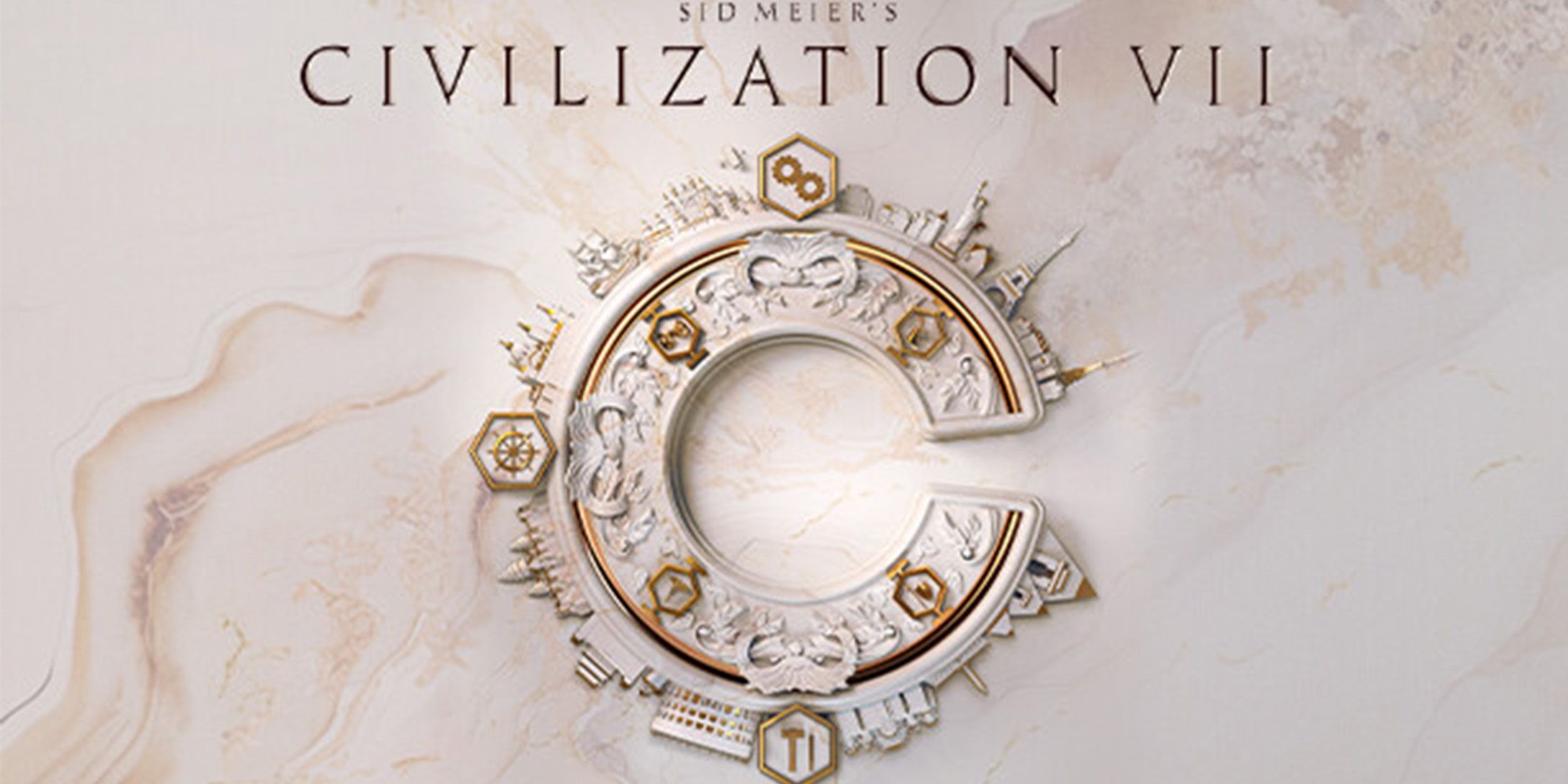
Related
Sid Meier’s Civilization 7 Review
Sid Meier’s Civilization 7 takes the franchise’s core formula, overhauls many of its features, and delivers another stellar strategy experience.
How Sid Meier’s Civilization 6 Shaped Civilization 7
Q: What major lessons did you learn from Sid Meier’s Civilization 6 that have helped influence how Sid Meier’s Civilization 7 plays and works?
Beach: That might be a loaded question, but it’s a really good one because how we got things started for Sid Meier’s Civilization 7 was by diving deep into Sid Meier’s Civilization 6. We had a design team that had spent five or more years really working on Sid Meier’s Civilization 6 to try to get it out the door, and then supporting it after launch for even more years. We had things we really liked about what had worked out with Sid Meier’s Civilization 6, but some things were frustrating to us as well.
Probably the biggest one is not necessarily a criticism of Sid Meier’s Civilization 6, it’s more a criticism of the 4X genre in general. The fact that a 4X game tends to have this type of explosion of units and cities and everything that you have to manage. And by the time you get to the end of the game, maybe you want to keep playing it, but maybe you want to just say, ‘Oh my goodness, there’s too much to manage. I don’t want to spend time getting through the turns. ‘
Sid Meier’s Civilization 6 didn’t make that any better. For instance, I really loved the builder gameplay. I was the one who was the primary instigator for putting that in Sid Meier’s Civilization 6, but by the time you got to the end of the game, you were kind of sick of those guys as well. Our primary goal for Sid Meier’s Civilization 7 was to make it so that we could restructure the game. We found that breaking it up into the chapters that we’re calling Ages was a great way to do that. We could pull some things back, reset the stage, simplify some things out, and we’re having much, much better luck with people getting through Sid Meier’s Civilization 7 games. It seems to be working, and we’re really excited about it.
Q: You mentioned builders. What happened to them? What made you guys decide to finally rip them out of the game and be like ‘We’re done with you guys?’
Beach: It wasn’t something that we set out on Sid Meier’s Civilization 7 as a goal: ‘Builders must go.’ In thinking back over, like all the whiteboards we had filled with post-mortem thoughts on Sid Meier’s Civilization 6, the builders were not perceived as a problem. But what we did identify as a problem was just the number of clicks it took to get to a turn and the number of transactions that a player was facing.
One of our design pillars for Sid Meier’s Civilization 7 was what we called impactful decisions, and obviously, this is sort of a lofty goal. We wanted everything the player was doing as much as possible to feel like an impactful decision, not just rote management. Knowing that that was one of our guiding principles, David, who at that time was leading our economic design, said, ‘You know, I think we should try it without builders and just see if we can tie the choice of what improvement you want next to the city growth event and see how that feels.’
I was skeptical at first, but we started playing with it, and it was not perfect. There were some things we had to work out. We had to get the user interface tuned up to the point where you could really understand all the ins and outs of that decision. But once we had that in there, we were surprised because there have been a lot of people that say, ‘I don’t think I’d like a game without builders or workers’ or something like that. But overall, the feedback has been very positive. We’ve focus-tested this game a lot, and it’s held up very well without builders.
Q: Along with that, another huge change you guys are making with Sid Meier’s Civilization 7 is splitting up leaders and civilizations. What made you finally decide to split them up, and what do you hope players get out of that new approach?
Beach: That was something that I feel like we were also getting closer and closer to. If you look at Sid Meier’s Civilization 6, we started to have leaders who could be in charge of multiple civilizations by the end. We also had the idea in mind that, ‘Hey, it’d be really fun.’ Players want to be able to build their own set of abilities, like, taking these leader abilities and pairing them with these Civ abilities. Now we were thinking about putting that in Sid Meier’s Civilization 6, but we decided we couldn’t do that because we had not balanced the game around that. We balanced them as Civs and leaders as a pairing and made sure that each of those pairings was equivalent in strength to all the other pairings.
Going into Sid Meier’s Civilization 7, we thought that that might be a cool thing we needed to do to get players some more customization, so setting it out from the beginning that way was a lot easier. The other thing we did is, once we came up with this idea of breaking the game up into chapters, we knew that we were going to have eight China Civs, or three India Civs, or even do a more nuanced pathway through Western Europe, for instance. We don’t want you to switch leaders every time, so that sort of connection between a leader and Civ is going to have to be more malleable to make those pathways make sense. Pretty much right from the gate, we knew for Sid Meier’s Civilization 7 that that was probably the way we were going to go, and we’ve been focus-testing and trying out combinations. We ended up with the current historic pathway system, where you have to unlock your civilizations so that they make a little bit more sense for the leaders after some of those iterations, but now we’re really happy with the way it came out.
Q: Are there any new leaders that either of you are particularly really excited for players to get their hands on?
Shirk: Ed, you should talk about Harriet Tubman
Beach: Okay, well, Harriet Tubman is near and dear to our whole team’s heart because our team is based in Maryland. Not sure how much background you have in the subtleties of US history, but Maryland has a whole set of museums. There are heritage trails you can go and explore on the Maryland Eastern Shore, on the other side of the Chesapeake Bay from where we are, and Harriet Tubman features in all those. She is sort of a local hero to us. She was also someone we could put in as a Civ leader and give her abilities that were very asymmetric to what a normal ability for a leader would be. Since we’re no longer requiring that you be a political leader of a nation, we can give you abilities in terms of espionage or recruiting people out of other civilizations, those types of things. Yeah, we were super excited to be able to include her this time.
Shirk: I’m more of a boring player. I tend to love Hatshepsut in Egypt, just because I’m a culture player, massively overpowered next to navigable rivers. Mine’s pretty safe. In terms of personal love, there’s Tecumseh. Just because of our working relationship with the Shawnee tribe and all the interactions we have, we’re traveling there again this weekend for their language center opening. That was just a really, really amazing exercise, and I think players are going to love engaging with that one.
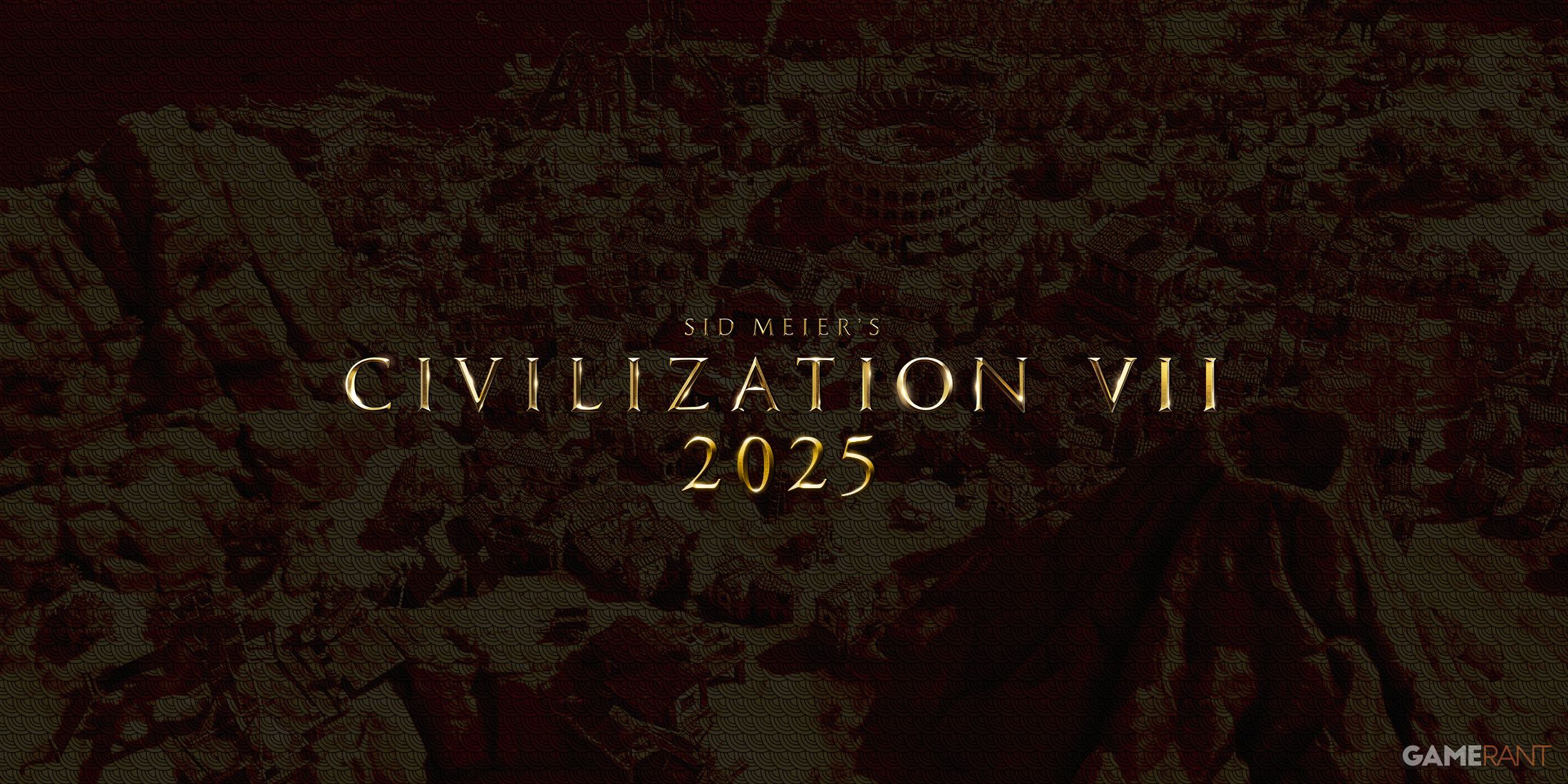
Related
What to Expect from Civilization 7 in 2025
Coming out in early 2025, Civ 7 is a bold new direction for the franchise, and fans should expect plenty of changes.
Sid Meier’s Civilization 7 is Shaped By Its Age System
Q: Along with that, the game is now split up into three very distinct ages. Can you tell us a little bit more about what goes on in each age?
Beach: Each age has its own theme and its own gameplay. In Antiquity, you’re just really focused on the starting hemisphere, the side of the map that you’re based on. Typically, there’s going to be a big land mass there and maybe some islands offshore. We do support other map types, like fractal and archipelago, so it’s not always one big land mass, that’s just typically how it is. But you’re setting up your initial set of cities, and you’re figuring out what the road connections are going to be between them. You’re figuring out who your neighbors are and getting trade up and going. One thing I really like about the age system is how we have added economic victory, but it feels very different in the different ages. In Antiquity, it’s about setting up a sort of Silk Road to your empire where there are lots of traders coming in from nearby lands. It’s probably not as fiercely competitive militarily as the modern age is, but there’s typically some struggle for which lands you’re going to get established in.
Exploration is quite a bit different. What I like about it is, in the first 20–30 turns of it, a bunch of the map opens up to you because now you can get across the ocean. To me, the magic moment for a Civilization game has always been the first 30 turns where you’re just figuring out where you are on the map, what’s nearby, and who your opponents are, but I feel like we brought some of that same sense of wonderment and exploration to the middle part of the game with the way the Exploration age works right now. Because you’re trying to get out across the seas, you’re trying to establish a worldwide empire. You might not get into the interior of the other land masses on the other side of the world, but settling along the shores and grabbing some of the exotic resources from over there is critical to what’s going on in the Exploration age. I feel like that’s cool because it kind of shakes it up. It gives a different pacing to that part of the game, or a different emphasis, which I think keeps things very fresh.
Modern is sort of where everything gets really serious. You have to deal with industrialization. You have to deal with getting ready for World Wars. There’s almost certainly going to be some people coming after you to fight over things there. We have a very aggressive military legacy path there, where you get points only for conquering other people’s cities. It feels like a very dramatic conclusion to this sort of three-act play that you go through with a Sid Meier’s Civilization 7 game.
Q: History is really long and varied. What made you guys settle on these three ages in particular and their names?
Beach: it’s interesting because we now have several very accomplished historians on our staff that we’ve added since Sid Meier’s Civilization 6, and trying to get them to pin down history into nice neat little boxes, as you can imagine, is a little bit tricky. We told them we had to do that, and we wanted each of the chapters of history to feel like an epic book, where you start out small, but then as you get deeper and deeper in the book and the story, the conflicts increase, and there’s a crazy battle at the end of the book. Then that book finishes, and before you go into the second book in that trilogy, you get a little bit of a reset, a little bit of a pause.
We really looked at the history from 4000 BC to the present to try to figure out if we could see those kinds of story arcs. We found that a lot of empires did collapse at the same time as the Roman Empire did, not necessarily just in Western Europe, but worldwide. That was a logical first chapter. The dividing line between exploration and modern was a little trickier to come up with, but there were some really dramatic changes with all the revolutions that happened, from the American Revolution through the French Revolution to all the monarchies that got thrown out in the first half of the 19th century. That was a reasonable enough breaking point, and then we just decided there was nothing sort of bigger and more cataclysmic across the whole world than the World Wars. That was a natural concluding point for the modern age.
Beach: They’re not always super clean like we wanted to have a launch into space since we’ve always had that. That came a little bit after World War Two; we had to fudge that one a little bit. There’s a little bit of fudging here and there, but it works well enough that we’re happy with it.
Shirk: We don’t need them pegged to specific, absolute years of time because we want that story told with change. Ed knows that he wants that whole World War environment to be a setup, something that happens and is affected by the world. I actually really like the muddiness of it, that it can happen at the beginning, can happen early. It’s just something that we provide a playground for the players to experience.
Sid Meier’s Civilization 7 Has Shaken Up Its Warfare and Victories Considerably
Q: Commanders are a newer feature, they’re kind of like an evolution of the Great Generals from Sid Meier’s Civilization 6. Where did that idea come from? And how do you hope that it shakes up the warfare element of the game?
Shirk: Yeah, this one was really interesting. We had a lot of feedback on Sid Meier’s Civilization 6 just among ourselves, from the audience, the community, and the whole nine yards that carpets of doom took a long time to manage. It would cause turn times to go out of control later in the game. The AI could have trouble with that, especially if you have a mountainous region and a lot of units that it needs to push around for wars. We decided that that was one of the areas where, whenever this team was looking for benign areas to clean up interesting decision-making, that was one of them that really came to the forefront. Brian Feldges just had a lot of input into that; he’s one of the senior designers in the design team who was working on a lot of the combat systems at that time.
The ability to move the promotions from the unit level to the commander level was one thing. That way, you always have that promoted commander that you can take through time, which is really cool. He has that sphere of influence. You can stack up those units into one army and move it as a one-hex unit to get it where you need to go in a hurry without all the traffic jams along the way. I frequently set up an army and just bivouac it near my city so he’s ready to go where I need him to go at any given time without having units spammed everywhere.
Reinforcing is awesome now. If you’re fighting a war 30 hexes away, like many of us do, you can build things back in your cities, you can tell it to reinforce a specific commander, and it’ll get there on its own. You don’t have to worry about how it’s getting there, the interruptions along the way, and everything else. Lots of extra stuff, like mass fire, mass attack. It’s just a really, really cool new system that makes the whole experience of waging a bigger war a lot more fun. It actually improves things for the AI side in terms of turn times, so I think it was just a win across the board. Additionally, because we also introduce the naval and air commanders in the Exploration and Modern age, it really makes the decision-making processes much better. Just removing a lot of the busy work and focusing on the interesting things. Everything that Ed and his team have been doing is to make sure that we’re focusing on what matters.
Q: For my final question, is there something about Sid Meier’s Civilization 7 that no one has asked you about yet, that you’ve just been dying to share?
Beach: Do you have anything, Dennis?
Shirk: I’m sitting here thinking about it. I was hoping you were going to talk before I had a chance to actually contemplate that one because we’ve answered a lot of interesting questions.
Beach: I think I’ve got one. Nobody has asked exactly how the new system of narrative events works. When do those get triggered, and why? So let me talk about that. Internally, we’re calling it our emergent narrative system. What’s really interesting about it is it takes a piece of Sid Meier’s Civilization 6 that I think was sort of a failure that I had worked on directly, which was the gossip system. You saw these messages going past you on the upper right-hand corner of the screen about what was going on in the rest of the world. It’ll tell you that your trader in such and such a city noticed that this foreign Empire was building a wonder, or that this trader noticed that there was a volcano there.
That system we found in Sid Meier’s Civilization 6 was just probably a little bit too noisy. There was just too much churn there for the players to really be able to engage with it and pay attention to it. There were some interesting tidbits in there, but they kind of got missed by players. We took that out for Sid Meier’s Civilization 7, but what we did is the same technology that informed the game systems about what was going on in the game world got fed into our new narrative system.
If you notice that the narrative events when they trigger, they are always triggered in response to what’s going on out there in the game world. Your city has flooded multiple times, same city. It’s really getting tiresome that these floods are coming through, that’s when you’re going to get an event about that. There actually are some narrative events that require a complex chain of conditions to fire.
We actually can track in our new game engine how many times certain stories are shown to players, so it’s going to be really interesting, right after our game launches, to figure out if people are seeing these complex chains of stories. It’s definitely been a pretty interesting journey to get all that in and working, but we’re really excited about the potential, not only for what we can do with it to further expand the experience for Sid Meier’s Civilization 7 players, but also what the mod community is going to be able to do with it.
[END]
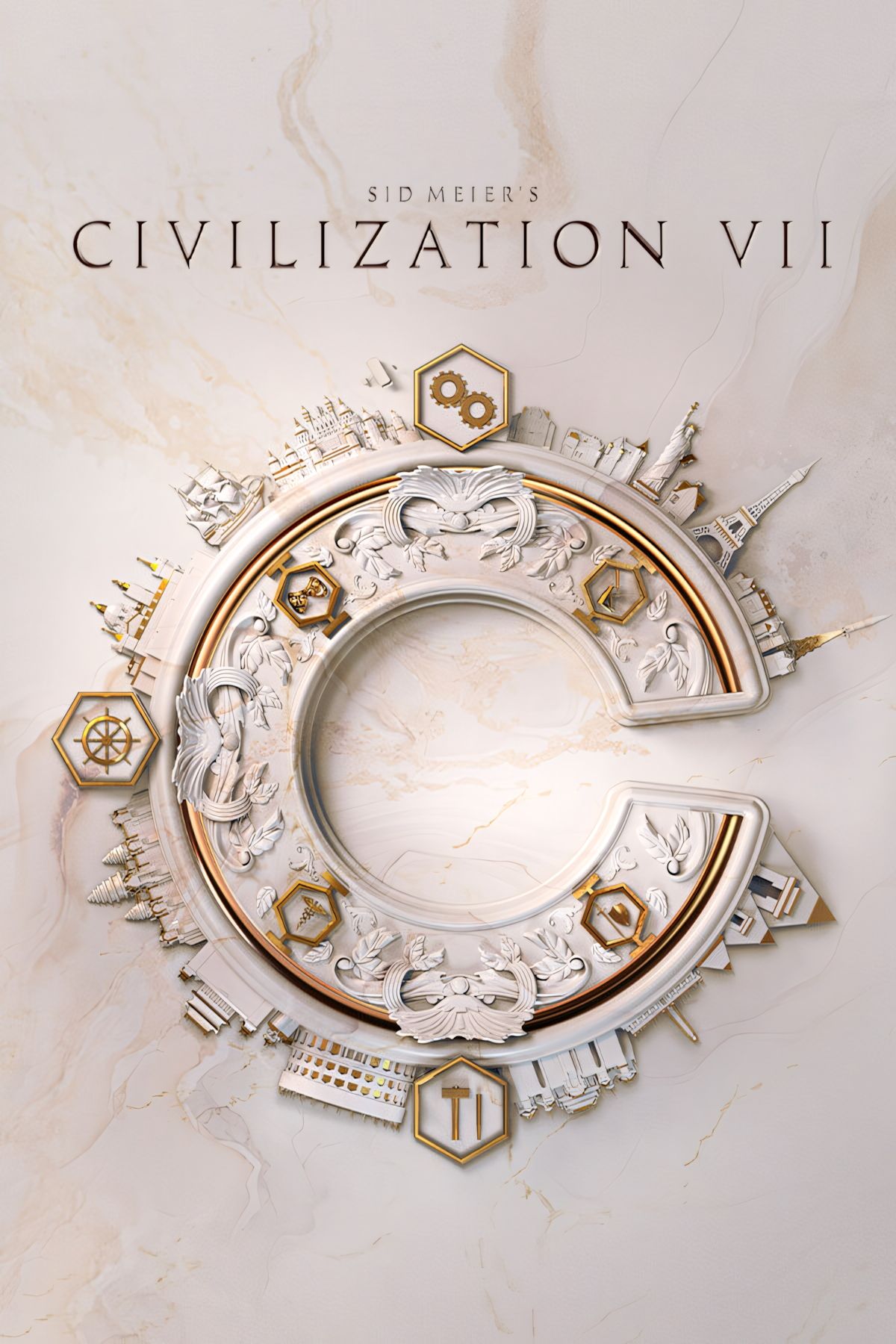
Grand Strategy
Turn-Based Strategy
4X
- Released
-
February 11, 2025
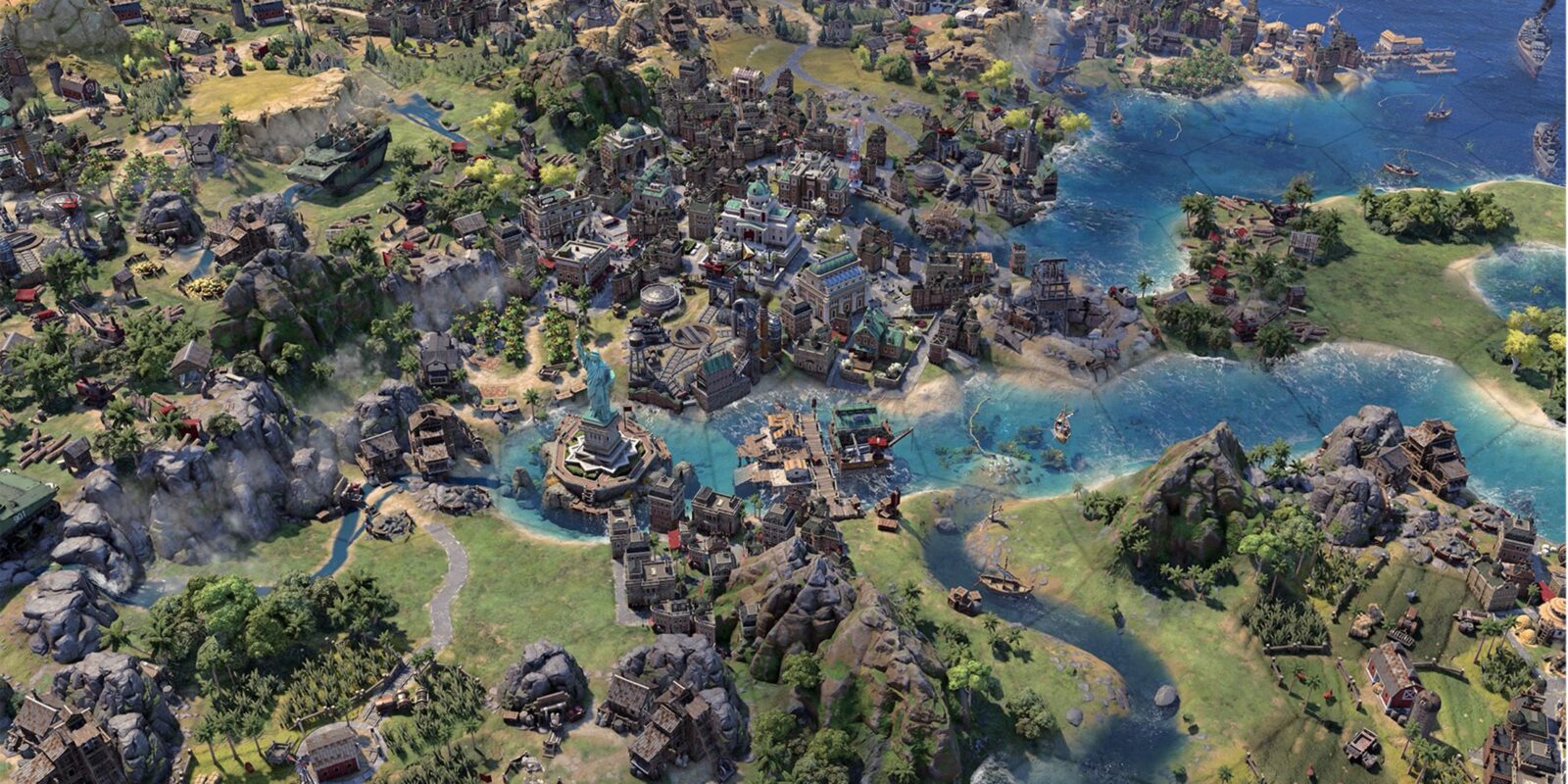

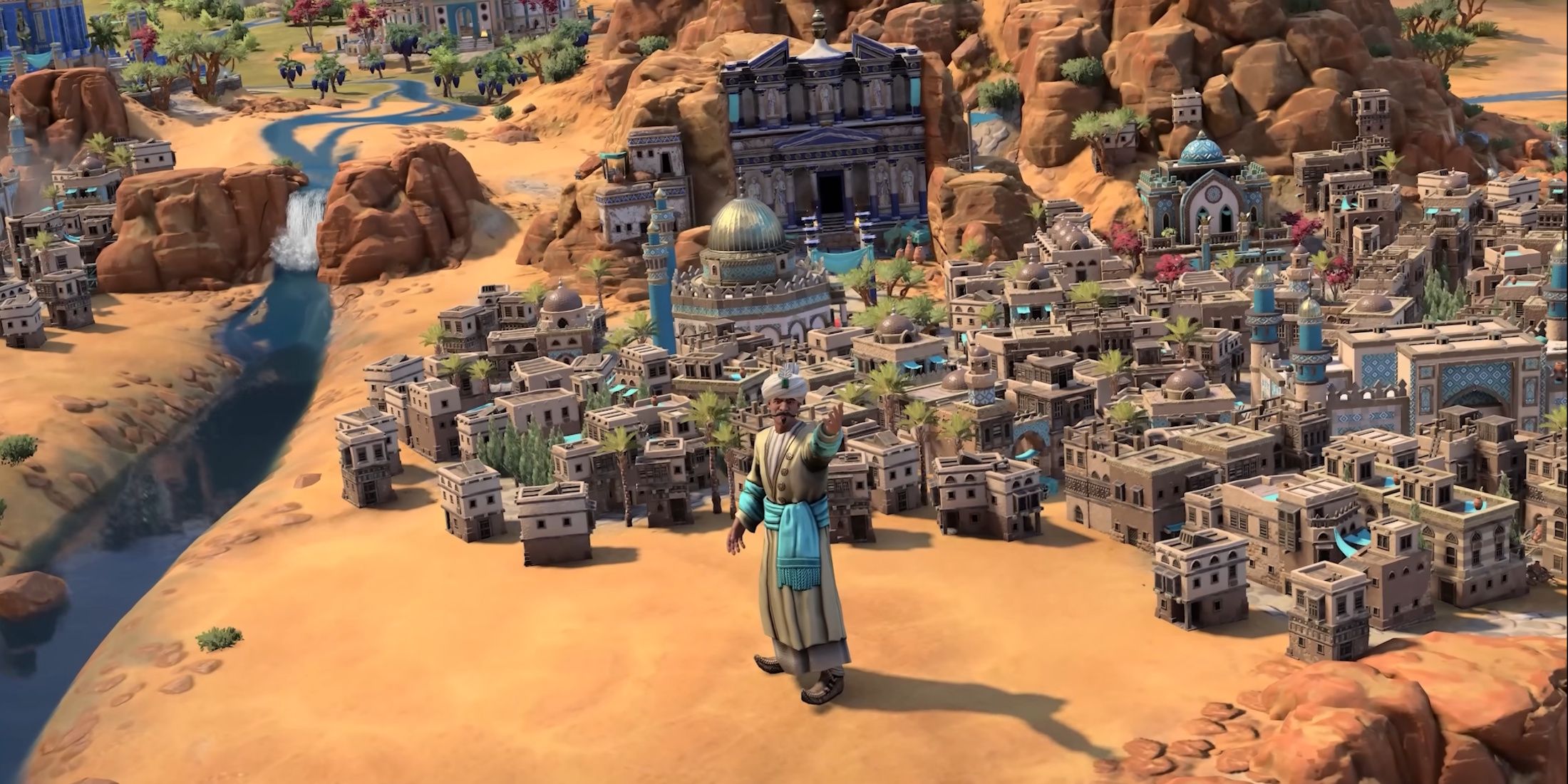
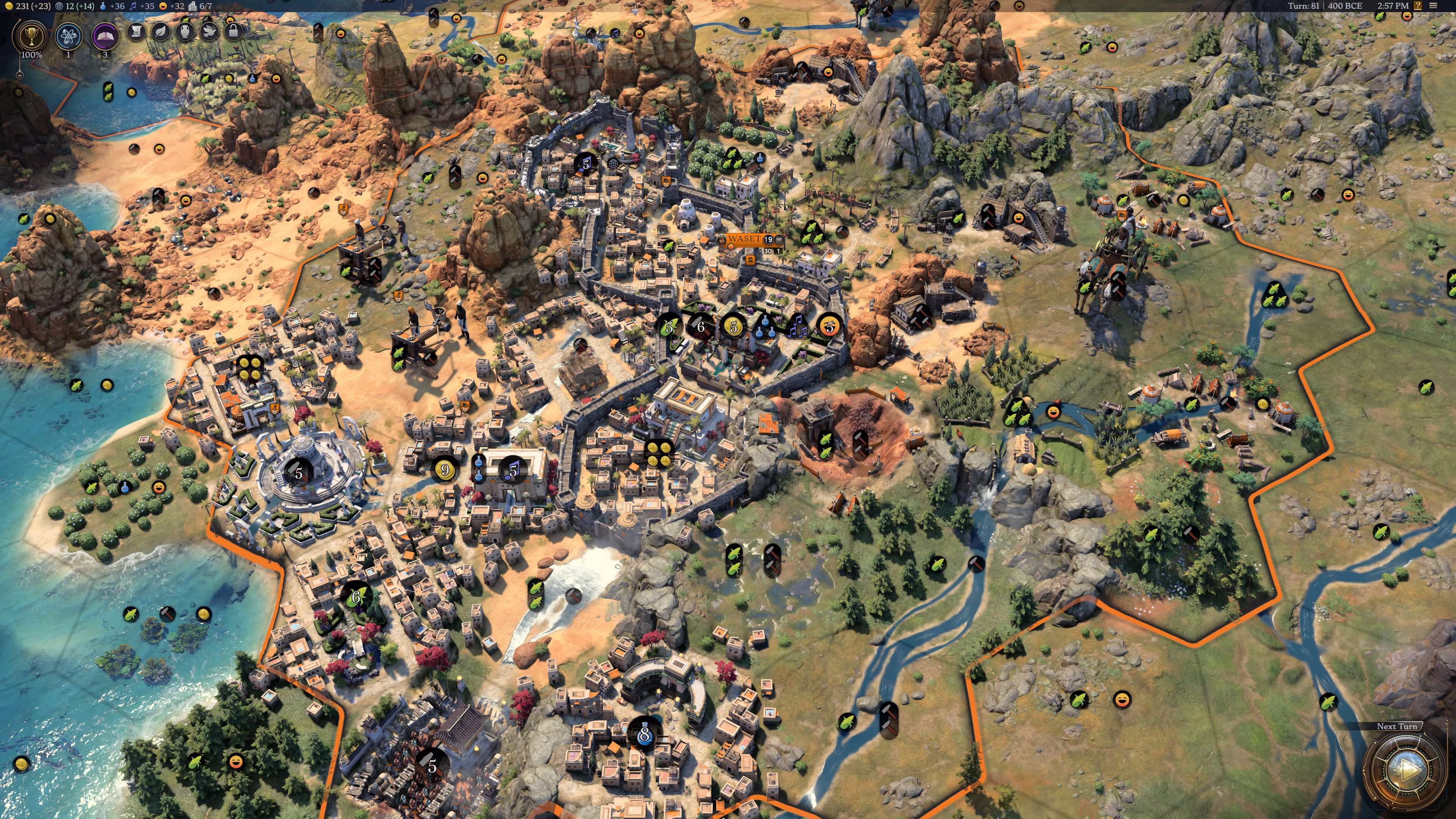



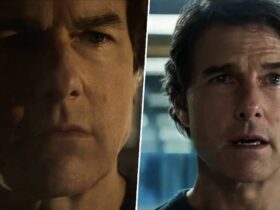

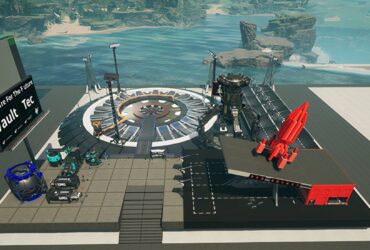
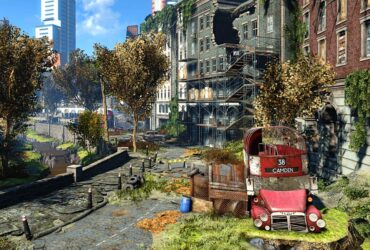



Leave a Reply